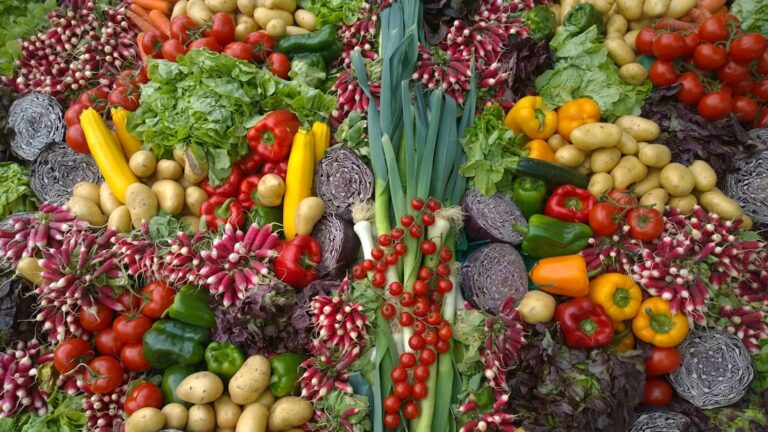Create the Perfect Diet Meal Plan for Weight Loss

When it comes to weight loss, it’s important to understand the basic principles that govern the process. Weight loss occurs when the number of calories burned exceeds the number of calories consumed. This can be achieved through a combination of dietary changes and increased physical activity. It’s also important to note that not all calories are created equal. The source of the calories you consume can have a significant impact on your weight loss journey. For example, 100 calories of broccoli will have a different effect on your body than 100 calories of soda. Understanding the concept of calorie density and nutrient density is crucial for making informed food choices that support weight loss.
In addition to calorie management, it’s important to consider the role of macronutrients in weight loss. Macronutrients, which include carbohydrates, proteins, and fats, are the building blocks of a healthy diet. Each macronutrient plays a unique role in the body and can impact weight loss in different ways. For example, protein is known for its ability to promote satiety and support muscle growth, while carbohydrates are the body’s primary source of energy. By understanding the role of each macronutrient and how they interact with the body, you can make more informed decisions about your dietary choices and optimize your weight loss efforts.
Key Takeaways
- Weight loss is achieved by creating a calorie deficit through a combination of diet and exercise.
- Personal dietary needs vary based on factors such as age, gender, activity level, and health conditions.
- Nutrient-dense foods provide essential vitamins, minerals, and fiber without excess calories.
- Lean proteins help to increase feelings of fullness and support muscle growth and repair.
- Balancing carbohydrates is important for providing energy and preventing blood sugar spikes and crashes.
- Healthy fats are essential for nutrient absorption and should be included in moderation in a meal plan.
- A sustainable and enjoyable meal plan includes a variety of foods that meet nutritional needs and personal preferences.
Identifying Your Personal Dietary Needs
When it comes to creating a successful meal plan for weight loss, it’s important to consider your personal dietary needs and preferences. Everyone’s body is different, and what works for one person may not work for another. Factors such as age, gender, activity level, and any underlying health conditions can all impact your nutritional requirements. It’s important to take these factors into account when planning your meals to ensure that you’re meeting your body’s needs while also supporting your weight loss goals.
In addition to considering your individual needs, it’s also important to take into account any dietary restrictions or food allergies you may have. For example, if you’re lactose intolerant or have a gluten sensitivity, you’ll need to make adjustments to your meal plan to accommodate these restrictions. By taking the time to identify your personal dietary needs and preferences, you can create a meal plan that is both effective for weight loss and enjoyable to follow.
Planning Meals Around Nutrient-Dense Foods
One of the key principles of a successful weight loss meal plan is to focus on nutrient-dense foods. Nutrient-dense foods are those that are high in essential nutrients such as vitamins, minerals, and antioxidants, but relatively low in calories. By incorporating nutrient-dense foods into your meals, you can ensure that you’re getting the most nutritional bang for your buck, so to speak. This can help you feel more satisfied and energized while consuming fewer calories, which is essential for weight loss.
Some examples of nutrient-dense foods include fruits, vegetables, whole grains, lean proteins, and healthy fats. These foods are not only packed with essential nutrients, but they also provide important dietary fiber, which can help promote feelings of fullness and support digestive health. By planning your meals around these nutrient-dense foods, you can create a meal plan that supports your weight loss goals while also providing the essential nutrients your body needs to function optimally.
Incorporating Lean Proteins for Satiety
Protein is an essential macronutrient that plays a crucial role in weight loss. Not only does protein support muscle growth and repair, but it also has a significant impact on feelings of satiety. When you consume protein-rich foods, such as lean meats, poultry, fish, eggs, dairy products, legumes, and tofu, you’re more likely to feel full and satisfied after a meal. This can help prevent overeating and snacking between meals, which is important for managing calorie intake and supporting weight loss.
In addition to promoting feelings of fullness, protein also has a higher thermic effect compared to carbohydrates and fats. This means that the body expends more energy digesting and metabolizing protein than it does with other macronutrients. As a result, incorporating lean proteins into your meals can help boost your metabolism and support weight loss efforts. By including a source of lean protein in each meal and snack, you can help ensure that you’re getting the protein you need to support your weight loss goals.
Balancing Carbohydrates for Energy
Carbohydrates are the body’s primary source of energy and play a crucial role in supporting physical activity and exercise. When planning meals for weight loss, it’s important to include a balance of complex carbohydrates such as whole grains, fruits, vegetables, and legumes. These foods provide important dietary fiber, vitamins, and minerals while also supplying the energy your body needs to function optimally.
While carbohydrates are an important part of a healthy diet, it’s also important to be mindful of portion sizes and choose high-quality sources of carbohydrates. For example, opting for whole grains over refined grains can provide more fiber and nutrients while also promoting feelings of fullness. By balancing your carbohydrate intake and choosing nutrient-dense sources, you can support your energy needs while also managing your calorie intake for weight loss.
Including Healthy Fats for Nutrient Absorption

Healthy fats are an essential part of a balanced diet and play a crucial role in supporting overall health and well-being. In addition to providing essential fatty acids that the body cannot produce on its own, healthy fats also play a role in nutrient absorption. Many vitamins and antioxidants are fat-soluble, meaning they need to be consumed with fat in order to be properly absorbed by the body. By including sources of healthy fats such as avocados, nuts, seeds, olive oil, and fatty fish in your meals, you can ensure that you’re getting the most nutritional benefit from the foods you eat.
In addition to supporting nutrient absorption, healthy fats also play a role in promoting feelings of fullness and satisfaction after a meal. Including healthy fats in your meals can help prevent overeating and snacking between meals by promoting satiety. When planning your meals for weight loss, it’s important to include a balance of healthy fats alongside lean proteins and complex carbohydrates to create a well-rounded and satisfying meal plan.
Creating a Sustainable and Enjoyable Meal Plan
Creating a sustainable and enjoyable meal plan is essential for long-term success with weight loss. It’s important to find a balance between meeting your nutritional needs and enjoying the foods you eat. Restrictive or overly complicated meal plans are often difficult to maintain over time and can lead to feelings of deprivation or frustration. Instead, focus on creating a meal plan that includes a variety of nutrient-dense foods that you enjoy and look forward to eating.
In addition to focusing on food choices, it’s also important to consider practical aspects such as meal prep and cooking skills. Finding simple and convenient recipes that fit into your lifestyle can make it easier to stick to your meal plan and avoid relying on less healthy convenience foods. By taking the time to plan and prepare meals ahead of time, you can set yourself up for success with your weight loss journey.
In conclusion, creating an effective meal plan for weight loss involves understanding the basics of nutrition and how they apply to your individual needs. By focusing on nutrient-dense foods, balancing macronutrients, and including sources of lean protein, complex carbohydrates, and healthy fats in your meals, you can create a sustainable and enjoyable meal plan that supports your weight loss goals while also providing essential nutrients for overall health and well-being. By taking a thoughtful and personalized approach to meal planning, you can set yourself up for long-term success with weight loss while enjoying the foods you eat.
Looking to create the perfect diet meal plan for weight loss? Check out this insightful article on Life Hacks for Home that provides valuable tips and tricks for organizing your kitchen and meal prepping effectively. This resource will help you streamline your cooking process and make healthier eating choices, ultimately supporting your weight loss journey.
FAQs
What is a diet meal plan for weight loss?
A diet meal plan for weight loss is a structured eating plan that helps individuals consume the right amount of calories and nutrients to achieve their weight loss goals. It typically involves portion control, choosing healthy foods, and creating a calorie deficit.
How do you create a diet meal plan for weight loss?
To create a diet meal plan for weight loss, you should start by determining your daily calorie needs based on your age, gender, weight, and activity level. Then, choose a variety of nutrient-dense foods such as fruits, vegetables, lean proteins, whole grains, and healthy fats. Portion control and meal timing are also important factors to consider.
What are some key components of a diet meal plan for weight loss?
Key components of a diet meal plan for weight loss include portion control, balanced macronutrients (carbohydrates, protein, and fat), adequate hydration, and regular physical activity. It’s also important to limit processed foods, added sugars, and unhealthy fats.
How can a diet meal plan help with weight loss?
A diet meal plan can help with weight loss by providing structure and guidance for making healthier food choices. It can also help individuals stay on track with their calorie and nutrient intake, leading to a sustainable and effective way to lose weight.
Are there any potential drawbacks to following a diet meal plan for weight loss?
Some potential drawbacks of following a diet meal plan for weight loss include feeling restricted or deprived, difficulty maintaining the plan long-term, and the potential for nutrient deficiencies if not properly balanced. It’s important to consult with a healthcare professional before starting any new diet plan.






